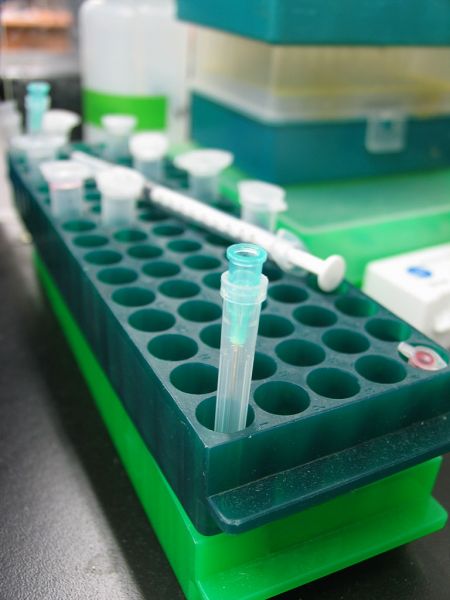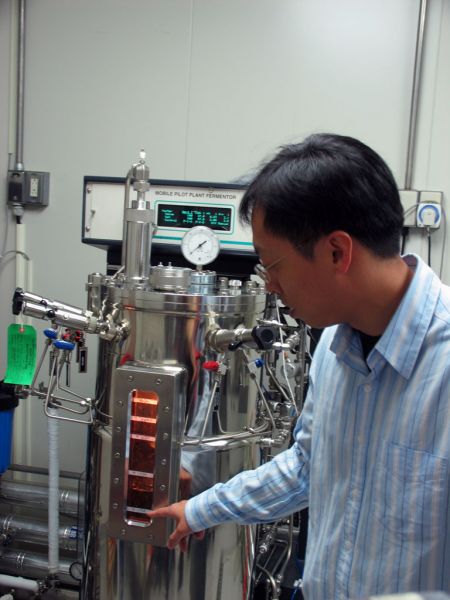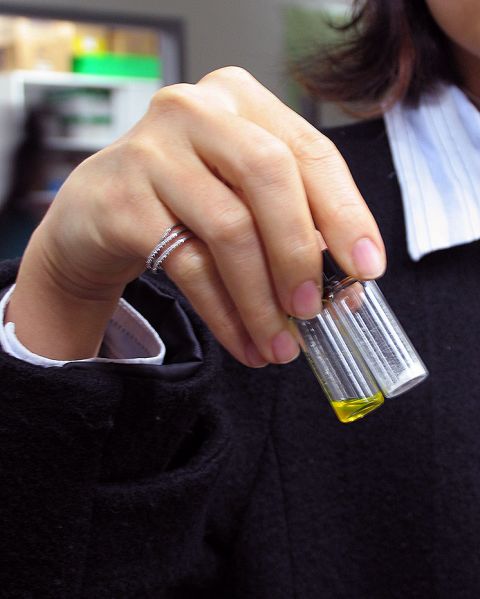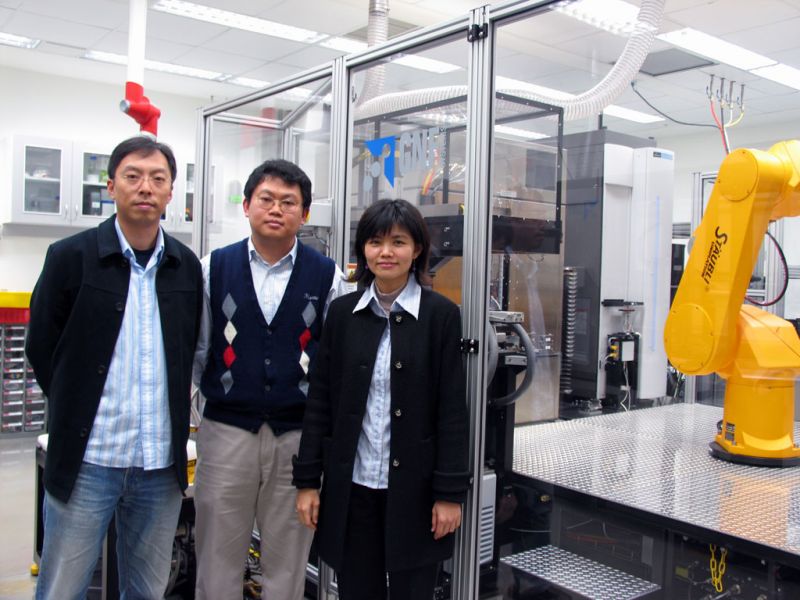In the battle of mankind vs. bacteria, the first round was won by mankind due to the discovery of Penicillin. Antibiotics thus became a seemingly almighty weapon to some medical warriors. Now, a century later, due to the abusive use of such weapons, bacteria has made its way to morph into newer versions and have a comeback. Currently, bacteria with growing resistance to existing antibiotics has been accused as a major cause of fetal hospital-acquired infections, and a brand-new weapon is nowhere to be found yet.

It is not that doom and gloom as it seems though. Scientists have already identified a weak point of the bacteria, that is, to attack the cell-wall, an essential element for its survival like skins to human. These enzymes for cell-wall formation are not found in human, therefore, any drug to inhibit these enzymes won't create a paradox to threatening human body as well. Actually, penicillin and its derivatives, for example, function by inhibiting a key enzyme in cell-wall biosynthesis called "transpeptidase".
There is another such enzyme called "transglycosylase". It has been a target for antibiotics discovery for decades. However, the only available inhibitor so far is moenomycin and is currently used only as a growth promoter in animal feeds.
A group of scientists with varieties of research interests from Genomics Research Center of Academia Sinica in Taiwan has successfully created an innovative approach which may very well be the platform to discover new antibiotics targeting "transglycosylase". In the newly published PNAS ("Domain requirement of moenomycin binding to bifunctional transglycosylases and development of high-throughput discovery of antibiotics",Proc. Natl. Acad. Sci. USA. 2008; 105:431-436.) in January 15, the group has reported a perfect scheme for this rescue mission.
Firstly, this target “transglycosylase” belongs to a special kind of proteins called membrane proteins, notoriously known difficult to obtain in large quantity. In order to create sufficient amount of the target protein samples, Dr. Che Ma, who has expertise in membrane proteins, devised a new method to prepare a large amount of proteins from E. coli. A group of students and research assistants have worked together to prepare such samples from 16 different kinds of bacteria.

On the other hand, Dr. Wei-Chieh Cheng, an expert in organic chemistry, has isolated moenomycin from fermentation broth and designed a fluorescence based probe. Therefore, when the tagged moenomycin binds to the sample transglycosylase proteins, researchers can easily monitor its interaction and existence.
With the model proteins and the fluorescent probe in hand, Dr. Ting-Jen Cheng established an assay suitable for high-throughput screening (HTS). This fluorescence anisotropy based assay uses polarized light to determine the existence of the interaction. Since something that functions as moenomycin can be the new antibiotics that they are looking for, Drs. Ting-Jen Cheng and Yih-Shyun Cheng then used the HTS facility to test out if any other compounds have a better attraction to the sample transglycosylase proteins. If so, the tagged moenomycin will be "dumped" and that can be spotted easily since it's tagged. They have run through 57,000 compounds within a short period of time. And, whoa la! 11 compounds stood out as hits!

The group took the last step and identified 3 compounds as final hits and completed the whole scenario of the study.
"Finding the hits is exciting", claimed Dr. Ting-Jen Cheng, "but it's also exciting to have proved a feasible approach that can be applicable for other targets. Better hits can be identified easily as long as we can keep collecting new compounds for HTS".
"This team work shows not only scientific achievement but also the importance of multidisciplinary collaboration including organic synthetic chemistry, natural product isolation, membrane protein research and assay development.", commented by Dr. Wei-Chieh Cheng.
Alex Ma, Wei-Chieh Cheng, Ting-Jen Cheng and President Chi-Huey Wong of Academia Sinica led this research project.

Dr. Alex Ma (left), Cr. Wei-Chieh Cheng (middle), Dr.Ting-Jen Cheng (right)


